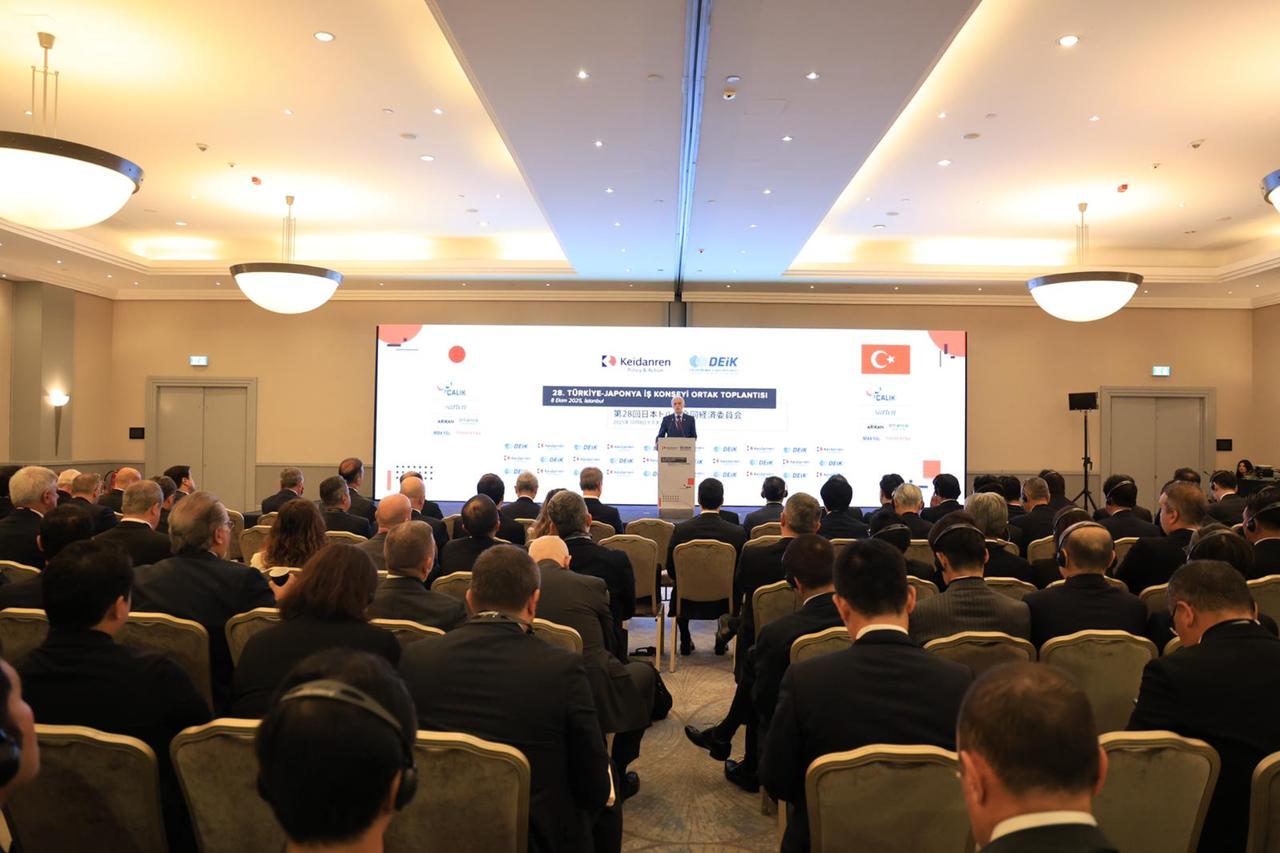
Türkiye and Japan are seeking to boost their $5.4 billion trade relationship by pursuing joint investment projects and cooperation in overseas markets, officials and business leaders said at the 28th Türkiye-Japan Business Council Joint Meeting in Istanbul on Wednesday.
The event was organized by the Foreign Economic Relations Board of Türkiye (DEIK) and Japan’s Keidanren, bringing together senior government officials and business leaders from both countries.
Nearly 200 participants, including top executives and policymakers, attended the forum to discuss strategies for expanding cooperation in bilateral trade, investment, and joint ventures in third countries.
Husnu Dilemre, Director General for International Agreements and the EU at Türkiye’s Trade Ministry, stressed that bilateral trade with Japan reached $5.4 billion in 2024 but noted that the balance remains heavily tilted in Japan’s favor.
"There is a nearly sevenfold imbalance in favor of Japan. Our priority is to reduce this imbalance and build trade that is more balanced, mutually beneficial, and sustainable," he said.
"The Economic Partnership Agreement (EPA) is crucial in achieving this goal," he said, adding that the long-negotiated pact, which aims to lower tariffs and ease market access, is key to creating a more balanced trade relationship.
He also underlined that Japan’s direct investment stock in Türkiye has reached $3.1 billion, with 275 Japanese companies active in the country.
Dilemre pointed to successful joint work on international projects such as the Marmaray rail tunnel in Istanbul, the new Dubai Metro, and Doha Airport.
"This model can be expanded across Africa, Central Asia, and in the future to reconstruction efforts in Syria and Ukraine," he said.
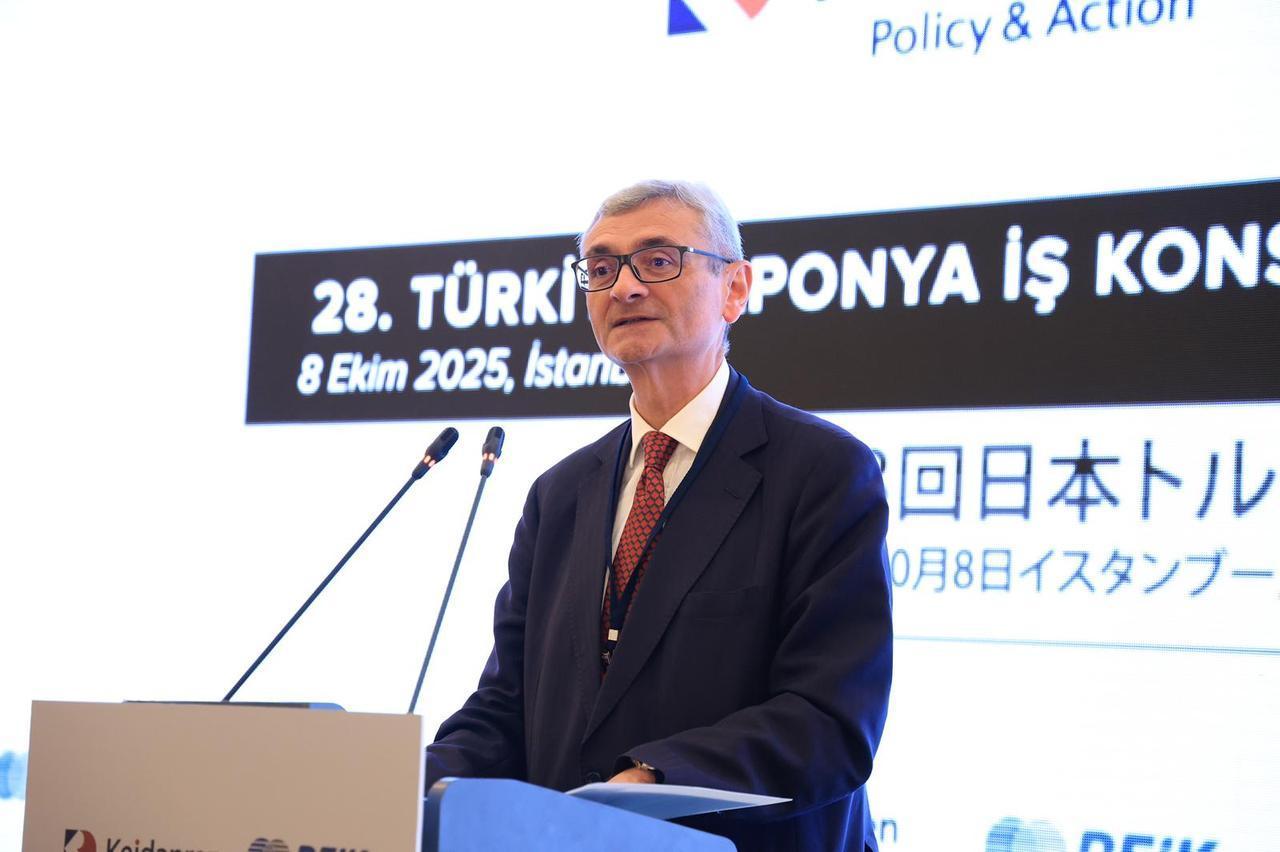
Takako Tujisaka, Deputy Director General for International Trade Policy at Japan’s Ministry of Economy, Trade and Industry, stressed the importance of the EPA in expanding investment.
"By eliminating customs barriers and improving the business environment, we want to increase bilateral investment and support Türkiye’s role as a production hub for Europe and the Middle East," she said.
Tujisaka noted that Japan views Türkiye as "a reliable partner at a time of global uncertainty."
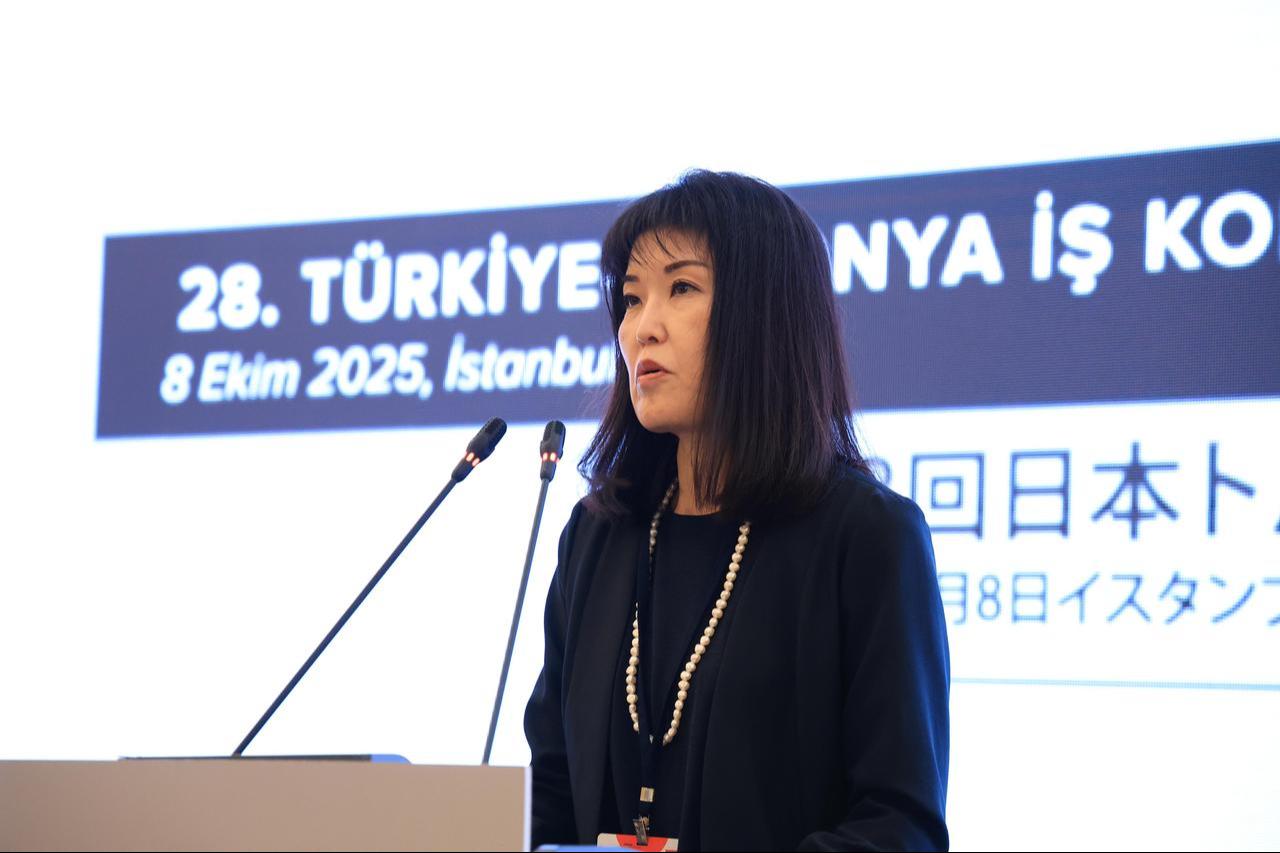
DEIK President Nail Olpak said new strategies are needed to rebalance and expand trade.
"The Economic Partnership Agreement should be shaped around the principle of mutual benefit," he stated.
Olpak also highlighted opportunities for joint projects in energy and beyond: "We want to work together not only in our countries but also in third countries, especially in Africa, and eventually in Ukraine and Syria when conditions allow."
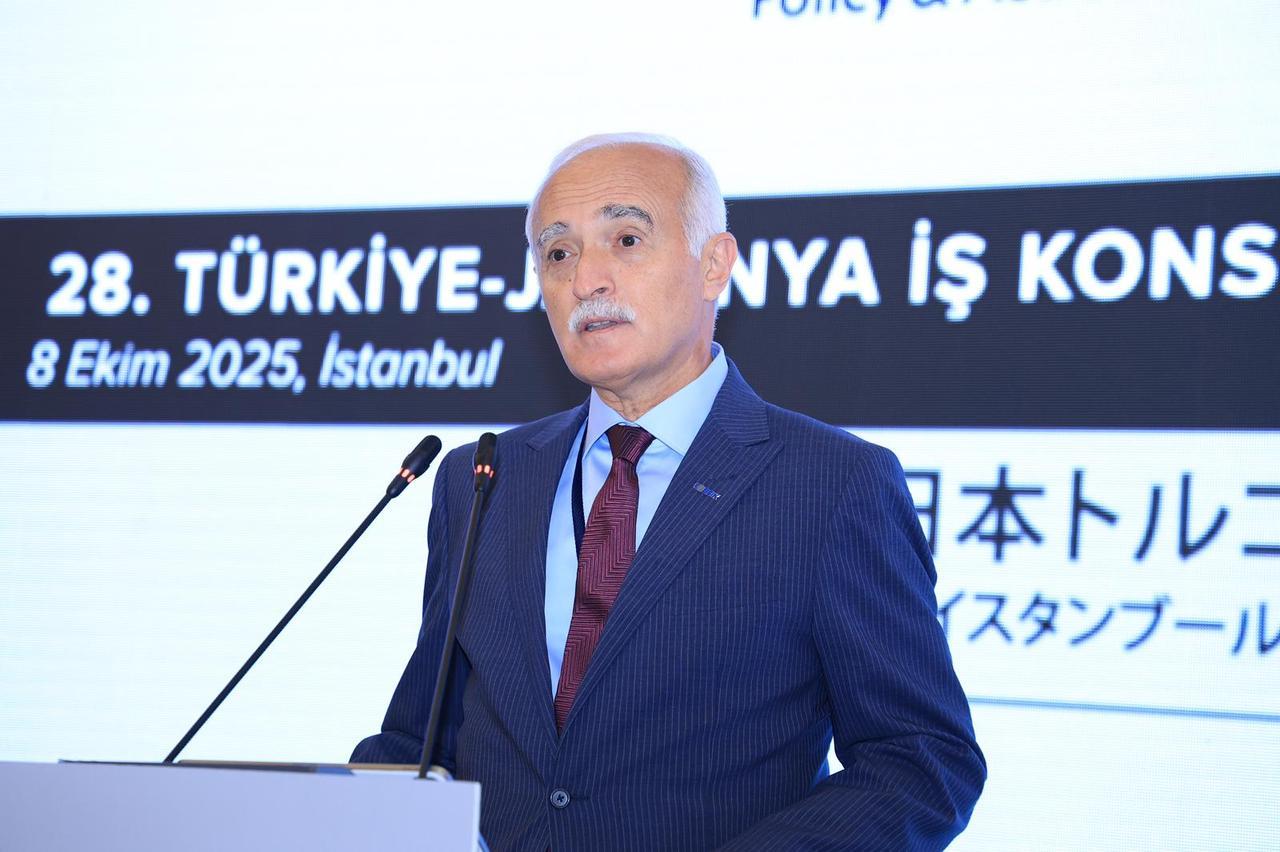
Kei Uruma, co-chairman of the Japan-Türkiye Economic Committee and CEO of Mitsubishi Electric Corporation, said Türkiye is emerging as a priority destination.
"If the EPA is concluded, Japanese companies will find it easier to invest in Türkiye and expand projects into third markets," he said.
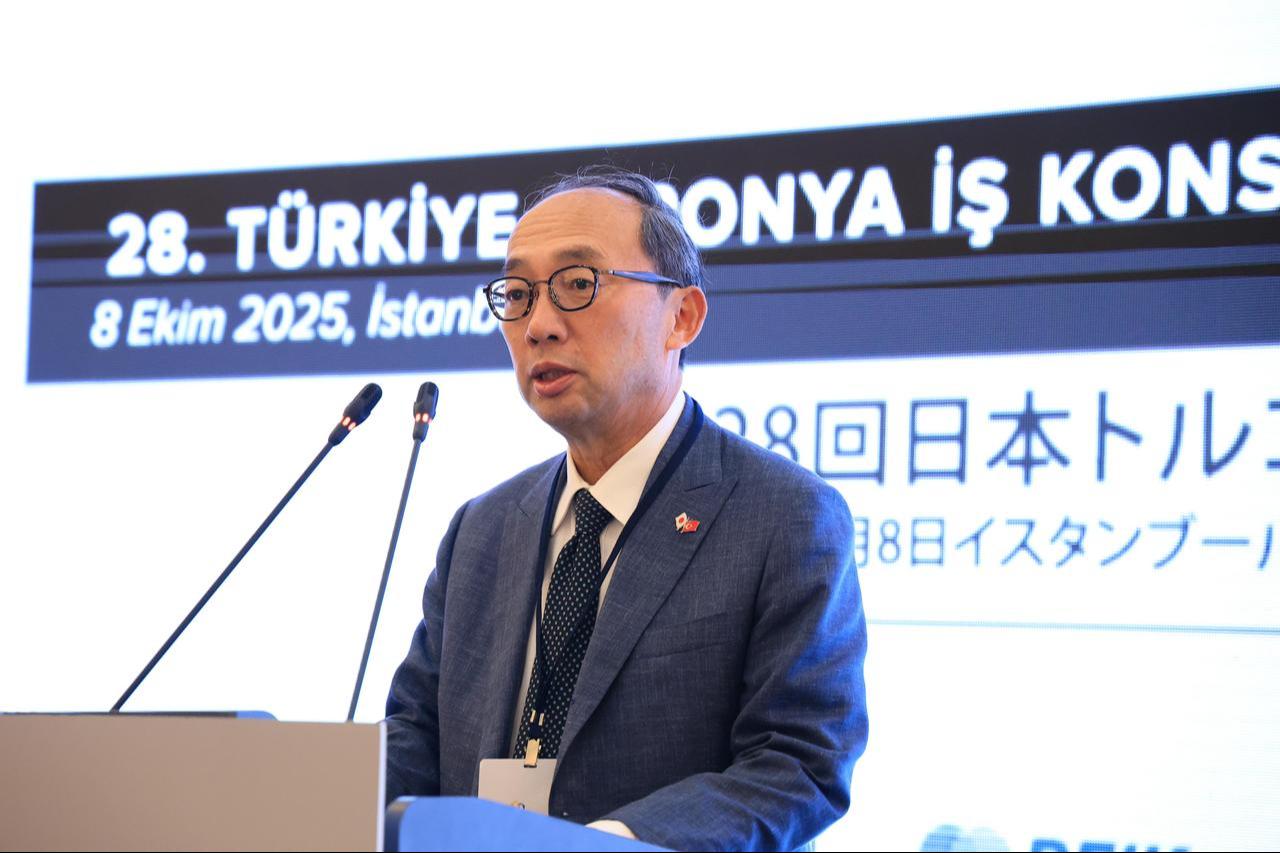
Ahmet Calik, Chairman of the DEIK Türkiye-Japan Business Council, stressed the broad scope of potential collaboration.
"We have valuable opportunities to expand cooperation from energy to technology, finance, infrastructure, artificial intelligence, and start-ups," he said.
Calik also pointed to the recent launch of All Nippon Airways flights to Türkiye, saying this would "increase business visits and tourism flows, supporting stronger bilateral ties."
The meeting concluded with panel discussions on investment climate, sectoral cooperation, and joint financing, followed by the signing of a joint declaration between DEIK and Keidanren.